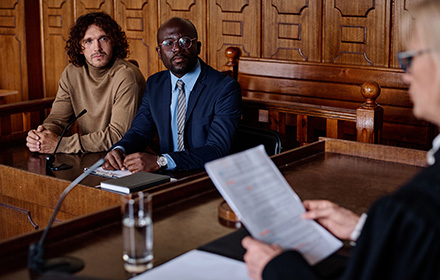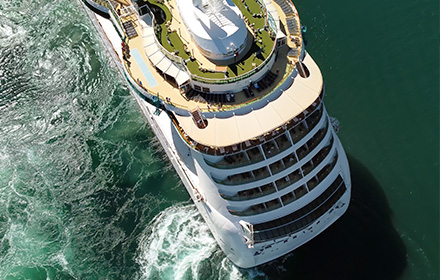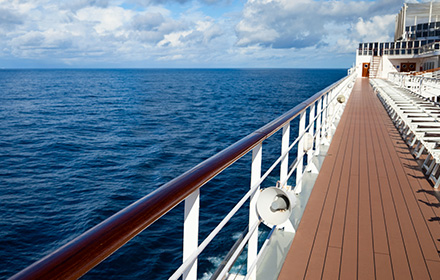What Laws Apply On A Plane?
July 11, 2025
Air travel crosses borders, time zones, and jurisdictions. But what many travelers don't realize is that the moment you step onto an airplane, a unique set of legal rules begins to apply—rules that depend on where the plane is registered, where it's flying, and what happens during the flight.

At Donet, McMillan & Trontz, P.A., we regularly assist clients facing federal and international criminal charges related to conduct on airplanes, whether involving in-flight incidents, customs issues, or international investigations. So, what laws apply on a plane, and how could they affect you?
1. Flag State Law: Where the Aircraft Is Registered
The primary legal authority on a plane comes from the country in which the aircraft is registered. Just like with ships at sea, the "flag state" of the aircraft governs what happens on board while it's in the air—particularly when it is flying over international airspace.
For example:
- A plane registered in the United States falls under U.S. law, even while flying over international waters or foreign countries.
- If you're on an Air France flight, French law governs onboard conduct, unless a treaty or local law gives another country jurisdiction.
2. Jurisdiction While in U.S. Airspace
Once a plane enters U.S. airspace, it becomes subject to U.S. federal laws—regardless of the aircraft's origin or destination.
The Federal Aviation Administration (FAA) and Transportation Security Administration (TSA) regulate safety and security in U.S. skies, while federal criminal statutes apply to onboard crimes, including:
- Assaulting crew or passengers.
- Sexual misconduct.
- Interfering with flight operations.
- Drug trafficking.
- Possession of prohibited items (weapons, explosives, etc.).

At Donet, McMillan & Trontz, P.A., we've represented clients charged with in-flight criminal offenses that triggered FBI investigations or prosecution under Title 49 of the U.S. Code, which governs air commerce and safety.
3. What Happens in International Airspace?
When an aircraft is in international airspace (generally more than 12 nautical miles from any coastline), the country of registration retains legal jurisdiction. However, multiple international treaties allow for shared or overlapping jurisdiction if:
- A crime involves a national of another country.
- The aircraft is scheduled to land in another country.
- The offense impacts public safety or security.
For serious incidents—like terrorism, hijacking, or smuggling—international law may also come into play. For instance, the Tokyo Convention allows the country of landing to prosecute in-flight offenses, even if they occurred outside its airspace.
4. Landing Location Matters
Even if an incident occurs mid-flight, the country where the plane lands can also exert jurisdiction. When a flight arrives in the U.S., U.S. authorities may investigate or arrest a person if:
- They violated federal law during the flight.
- They are carrying contraband or undeclared items.
- They committed a customs violation or immigration fraud.
In many cases, U.S. Customs and Border Protection (CBP) or Homeland Security will conduct inspections and interviews upon landing. This is a critical point where legal representation can make a significant difference. If you're detained or questioned during or after a flight, contacting an experienced criminal defense lawyer immediately is essential.
5. Common Criminal Charges on Airplanes
Passengers can be charged with a variety of crimes during a flight. These include:
- Interfering with a flight crew (a federal felony).
- Sexual assault or misconduct (especially in alcohol-related incidents).
- Disorderly conduct or intoxication.
- Drug possession or trafficking.
- Failure to comply with federal mask mandates or safety regulations.

A single moment of poor judgment on a flight can quickly escalate into a federal charge. And while the plane might be the scene of the incident, the legal consequences happen on the ground, often with long-term implications.
How Donet, McMillan & Trontz, P.A. Can Help
At Donet, McMillan & Trontz, P.A., we bring over 50 years of combined experience to every case, including those involving in-flight offenses, customs violations, and federal criminal investigations. We've successfully defended clients arrested upon arrival at U.S. airports, as well as those under investigation for international offenses involving air travel.
Our team understands:
- The intersection of federal and international law.
- How aviation laws apply across jurisdictions.
- The federal court system, including pretrial negotiations and trial defense.
If you've been accused of a crime while on a plane or at the airport, don't wait. Early legal intervention can protect your rights, mitigate penalties, and even prevent charges from being filed at all.

Final Thoughts
The next time you board a flight, remember: you're not leaving the law behind. Whether flying across the country or halfway around the world, you are subject to the laws of the aircraft's country of registration, the country where you land, and potentially the countries you fly over.
If you find yourself under investigation or charged with a crime related to air travel, Donet, McMillan & Trontz, P.A. is ready to help. We offer strategic, aggressive representation tailored to the complex nature of cross-border and in-flight legal issues.
Call us today at Donet, McMillan & Trontz or visit our website to schedule a confidential consultation.





















